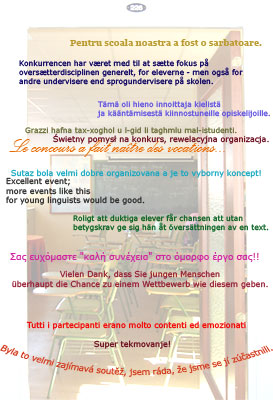posted by Toby Garfitt
Why bother to expend any effort on translating from one language to another, when Google will do it for you? These days you can simply point your smartphone’s camera at any word or phrase in a sign or menu, and an app will give you its meaning. But translating literature is not quite so easy. If literary translation has always been at the heart of university language study, it is because it takes you below the surface of both language and culture. To translate even the shortest passage you have to have a developed sensitivity to nuance and register in both the languages you are dealing with, and also to the cultural connotations of the words. Is bourgeois the same as middle-class? What is ‘pride’ referring to in this particular context?
As well as the compulsory translation exercises, students of French and German at Oxford can opt to do a special “advanced translation” course in which they reflect on their own practice and on the insights of translation theory. Some of them then go on to do a master’s course in translation and/or interpreting, for instance at Bath or Edinburgh or London Metropolitan University.
Many of the Oxford tutors have published translations as well as their academic research, and some of them have won translation prizes. It is exciting to see that our undergraduates are already winning prizes before they join us. This year’s UK winner of the European Juvenes Translatores competition for 17-year-olds is Jonah Cowen, who will be coming to Magdalen College in 2016 (after a gap year) to study German and Linguistics. Here’s his video interview:
Last year’s winner, Walker Thompson, is currently at Magdalen studying German and Russian, although his winning translation was from French.
If you’re interested in entering a future competition through your school, the Juvenes Translatores website is here, and they also have a Facebook page here.

